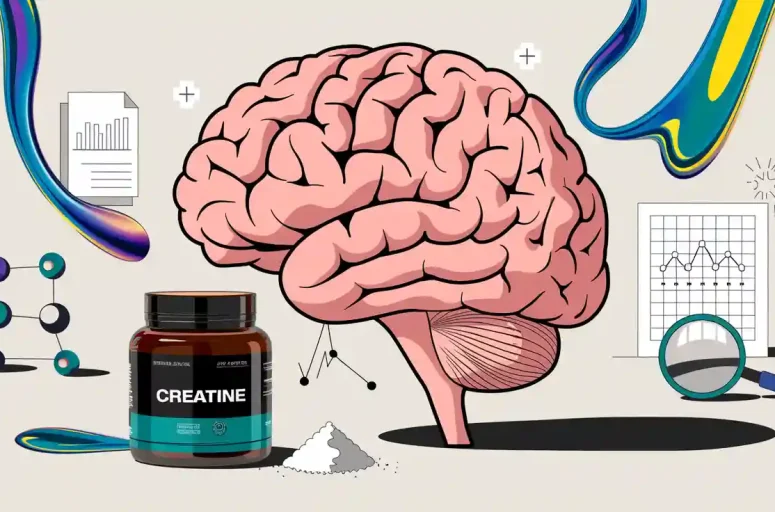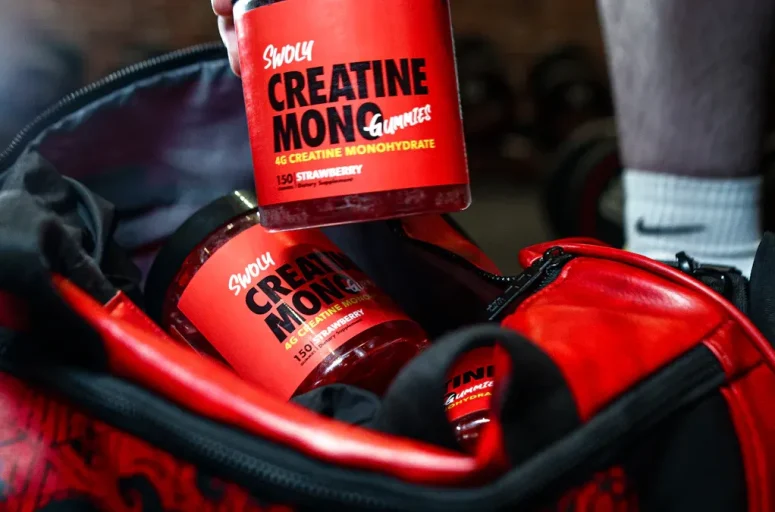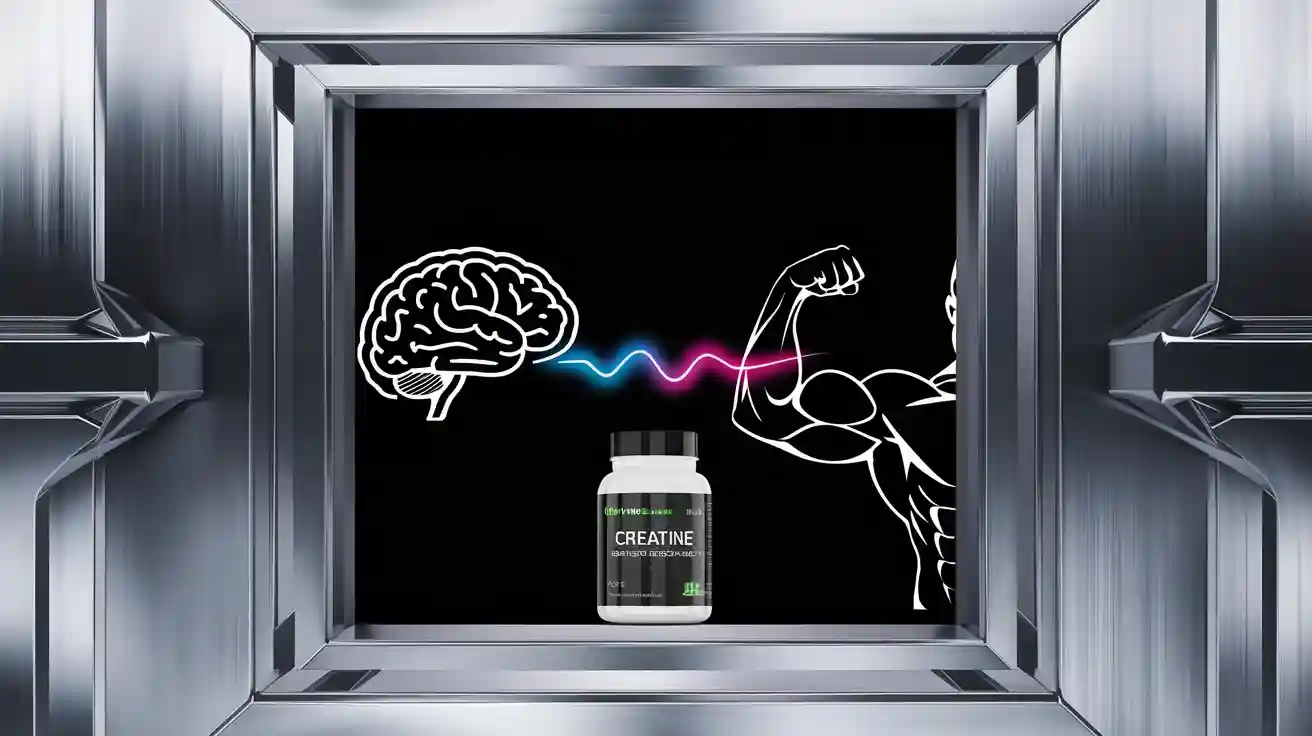
After a long day, many people struggle to maintain focus or recall simple details. Recent research shows creatine for brain health goes beyond muscle building. A pilot trial with Alzheimer’s patients found creatine supplementation increased brain creatine levels and improved working memory. Studies reveal creatine supports brain health by reducing inflammation and oxidative stress, which helps preserve cognitive abilities as people age. Experts note creatine enhances mental clarity and focus, especially in stressed brains. Clinical trials confirm creatine’s safety and its potential to support cognitive longevity in older adults.
Key Takeaways
Creatine boosts brain energy, helping with memory, focus, and mental tasks, especially under stress or aging.
Older adults, vegetarians, and people with low brain creatine benefit most from supplementation.
Creatine supports brain health by reducing inflammation, oxidative stress, and protecting neurons.
Consistent use of creatine monohydrate at about 5 grams daily for 8 weeks or more yields the best results.
Creatine is safe for most adults, but people with kidney issues should consult a doctor before use.
Creatine may improve mood and reduce symptoms of depression and anxiety when combined with other treatments.
Creatine helps recovery after brain injury by protecting brain cells and improving cognitive outcomes.
Research continues to explore creatine’s role in brain energy, neurotransmitters, and potential new therapies.
Creatine for Brain Health
Main Benefits
Creatine for brain health has gained attention because it supports several important processes in the brain. Researchers have found that creatine increases phosphocreatine stores, which helps the brain produce more ATP. This extra energy supports brain function during tasks that require memory, reasoning, and problem-solving. Many studies show that creatine supplementation can improve short-term memory and intelligence test scores, especially in vegetarians and older adults.
Some of the main benefits include:
Creatine boosts energy production in the brain, which helps with demanding cognitive tasks.
Supplementation may improve short-term memory and reasoning skills.
Creatine can reduce mental fatigue, especially during stressful or challenging situations.
It may improve mood by affecting dopamine levels and supporting healthy mitochondria.
Researchers have observed neuroprotective effects, which may help protect the brain from diseases like Parkinson’s, Huntington’s, Alzheimer’s, ALS, and injuries.
Creatine for brain health may reduce fatigue and dizziness in people with traumatic brain injuries or those experiencing sleep deprivation.
Note: While creatine shows promise for brain health, scientists continue to study its effects, especially in young, healthy individuals.
Key Findings
Recent research highlights several important findings about creatine for brain health. Clinical trials with healthy adults suggest that creatine supplementation can improve short-term memory and reasoning. However, results for other areas like long-term memory, spatial memory, attention, and executive function remain mixed. Young adults often do not show changes in cognitive performance after taking creatine, but vegetarians tend to see greater improvements in memory tasks compared to those who eat meat.
Key findings include:
Creatine supplementation may enhance short-term memory and reasoning, especially in older adults and vegetarians.
It can reduce mental fatigue during tasks that require a lot of cognitive effort.
Some studies suggest creatine may improve mood and reduce symptoms of depression or anxiety.
Creatine might offer neuroprotection against stress-related conditions, including poor sleep quality.
The main mechanism involves boosting the brain’s energy supply through the creatine/phosphocreatine system, which helps neurons replenish ATP.
Experimental data show that brain creatine levels increase after supplementation, but only up to a certain point.
The neuroprotective effects of creatine may help restore phosphocreatine levels and improve motor function in people with neurodegenerative diseases or brain injuries.
The safety profile of creatine supports further research, especially for people with cognitive impairment or dementia.
Researchers agree that more studies are needed to fully understand the neuroprotective effects of creatine for brain health, but current evidence points to its potential for supporting cognitive function and neuroprotection.
Creatine in the Brain
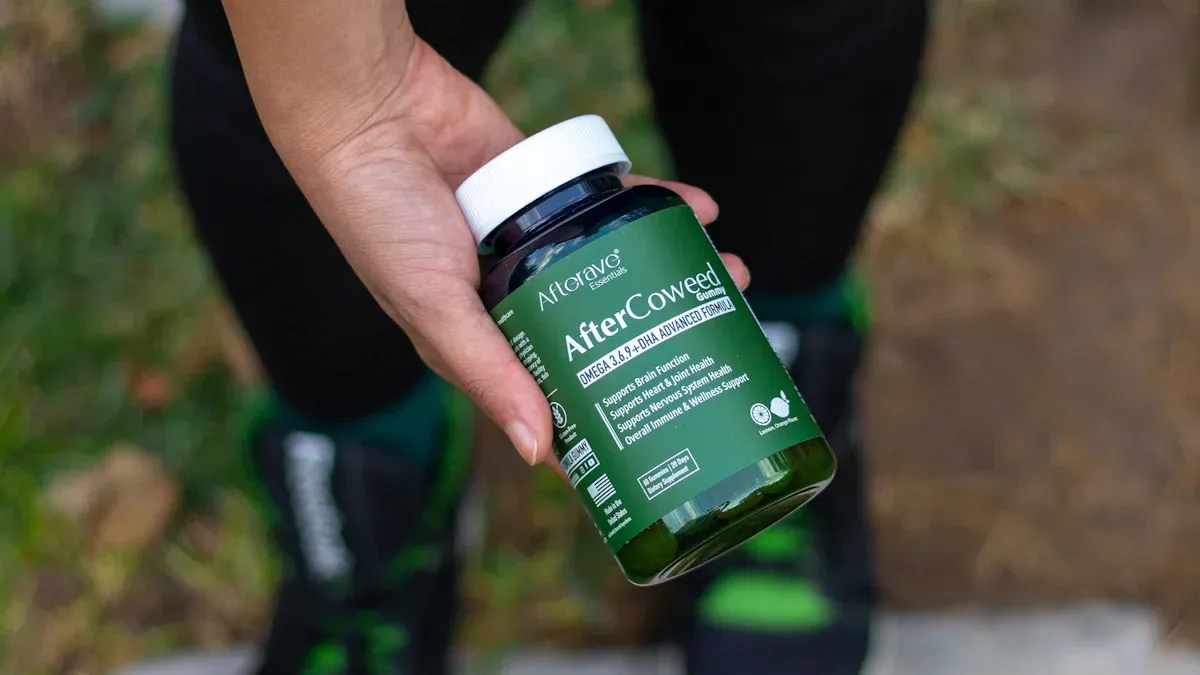
Energy Support
Creatine plays a vital role in supporting energy production within the brain. Brain cells need a constant supply of energy to maintain brain function, especially during periods of high mental activity or stress. Creatine helps transport high-energy phosphates, which regenerate ATP, the main energy source for cells. This process allows the brain to meet sudden energy demands and maintain stability during challenging situations.
Recent studies show that creatine supplementation increases brain creatine levels by crossing the blood-brain barrier. In an eight-week clinical trial, people with Alzheimer’s disease who took creatine monohydrate experienced an average 11% increase in brain creatine. This rise in creatine linked to improvements in cognitive performance. Researchers also found that creatine forms phosphorylcreatine, which donates phosphate groups to regenerate ATP quickly. This rapid energy buffering supports brain function and may provide neuroprotective effects during periods of low energy, such as sleep deprivation or illness.
Evidence Aspect | Description |
|---|---|
Creatine’s Role in Brain Energy | Creatine transports high-energy phosphates to regenerate ATP, critical for brain energy metabolism. |
Blood-Brain Barrier Penetration | Supplementation with creatine monohydrate increases brain creatine levels, demonstrating BBB crossing. |
Clinical Trial Findings | An 8-week pilot trial with 20g/day CrM in Alzheimer’s patients showed an average 11% increase in brain creatine. |
Cognitive Effects | The trial reported preliminary cognitive improvements associated with increased brain creatine. |
Preclinical Evidence | AD mouse models showed improved cognition, brain energy metabolism, and reduced pathological markers with CrM. |
Feasibility | CrM supplementation was feasible and well-tolerated in AD patients. |
Mechanistic Insight | Creatine forms phosphorylcreatine (PCr), a rapid phosphate donor to regenerate ATP, buffering low energy states. |
Therapeutic Potential | Creatine supplementation may be a cost-effective strategy to improve brain energy metabolism in AD. |
Creatine also reduces oxidative stress and supports healthy mitochondria, which further enhances its neuroprotective effects. These actions help protect brain cells from damage and support overall brain health.
Neurotransmitters
Creatine influences neurotransmitter systems in the brain. Astrocytes, a type of glial cell, produce creatine using special enzymes. Neurons then take up creatine through a transporter called SLC6A8. Inside neurons, creatine is stored in synaptic vesicles and released when the neuron becomes active. This release depends on calcium and follows patterns seen with other neurotransmitters.
Scientists believe creatine may act as a neuromodulator. It affects GABA and NMDA receptor systems, which play key roles in mood, memory, and learning. Some studies show that creatine release can inhibit certain neurons, which may help explain its neuroprotective effects. Genetic studies reveal that mice lacking the enzymes or transporters needed for creatine have problems with brain function, highlighting the importance of creatine in neurotransmitter regulation.
Creatine’s ability to modulate neurotransmitter activity may contribute to its neuroprotective effects, especially in conditions linked to mood disorders or neurodegenerative diseases.
Brain Creatine Stores
Creatine stores in the brain are not evenly distributed. Some regions, such as the thalamus and white matter, show higher increases in creatine after supplementation. The thalamus, which has high energy needs, can increase its creatine content by nearly 15%. White matter also shows strong increases, while gray matter and the cerebellum have smaller changes.
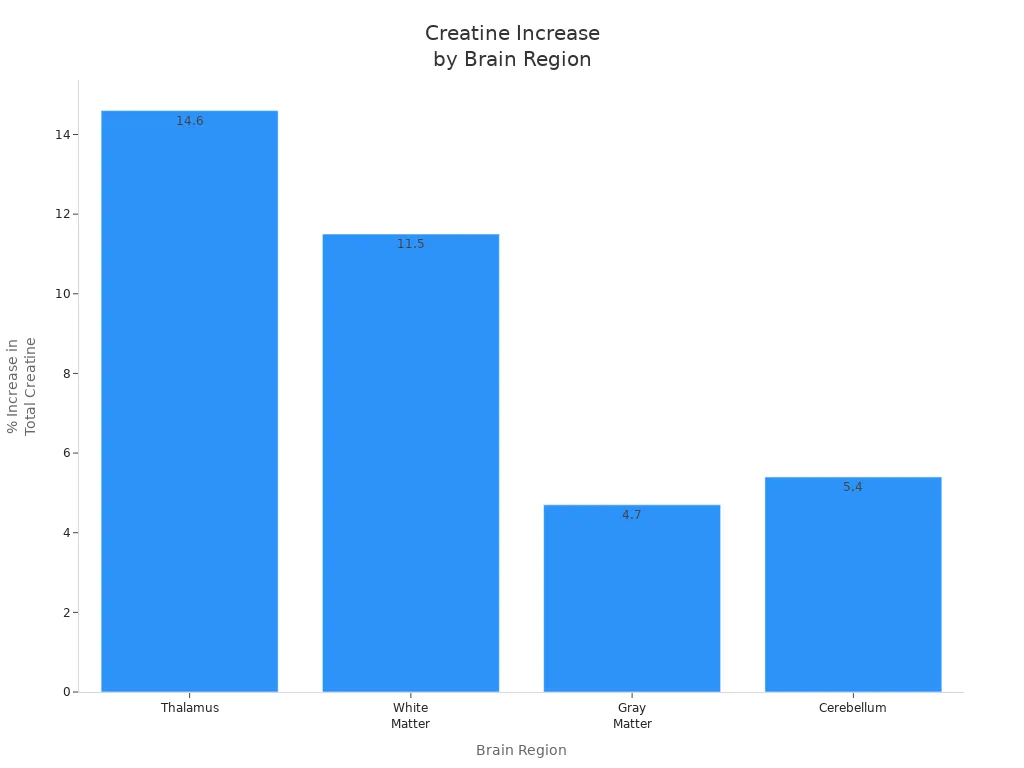
Researchers note that the brain has two creatine pools: one that responds to supplementation and another maintained by the body’s own synthesis. The brain’s ability to make its own creatine may limit how much extra creatine it can store from supplements. However, during times of stress, aging, or disease, the brain may rely more on external creatine to maintain brain function and support neuroprotective effects.
Creatine supplementation increases brain creatine levels, but the effect is less dramatic than in muscles. Still, even small increases can support neuroprotective effects and help maintain healthy brain function, especially in regions with high energy demand.
Cognitive Benefits
Memory
Creatine plays a key role in supporting memory and overall cognition. Scientists have studied how creatine supplementation affects memory tasks and cognitive function in healthy adults. They found that creatine can improve memory, especially in older adults. The following points highlight important findings from a systematic review and meta-analysis:
Researchers analyzed eight randomized controlled trials comparing creatine supplementation to placebo.
Creatine supplementation led to significant improvements in memory measures.
Older adults aged 66-76 years showed the strongest gains in memory tasks.
Younger individuals did not experience significant changes in memory performance.
The effect of creatine remained consistent across different doses, durations, and participant backgrounds.
Creatine’s impact on brain energy metabolism may explain its benefits for memory and cognition.
The review followed strict research standards, ensuring reliable results.
Creatine helps the brain store more energy, which supports cognitive function during demanding memory tasks. Older adults may benefit most from creatine supplementation, as their brains often need extra support to maintain memory and cognition. The evidence suggests creatine can enhance memory and cognitive performance, especially for those at risk of age-related decline.
Attention
Creatine also influences attention and focus, which are important aspects of cognitive function. Scientists have conducted cognitive tests to measure how creatine affects attention time and concentration. The table below summarizes findings from a systematic review and meta-analysis:
Aspect | Details |
|---|---|
Study Type | Systematic review and meta-analysis |
Authors | Chen Xu et al. (2024) |
Number of RCTs | 16 |
Total Participants | 492 adults (aged 20.8-76.4 years) |
Intervention | Creatine monohydrate supplementation |
Cognitive Domains Assessed | Attention time, memory, processing speed, executive function, overall cognitive function |
Key Findings | Significant positive effects on attention time (SMD = -0.31), memory, and processing speed time |
Certainty of Evidence | Low certainty for attention and processing speed; moderate for memory |
Subgroup Insights | More benefits in diseased individuals, ages 18-60, and females |
Duration Effects | No significant difference between short- (<4 weeks) and long-term (≥4 weeks) supplementation |
Conclusion | Creatine may improve attention and focus but further large, robust trials are needed |
Recent articles highlight creatine’s potential to help people with concentration difficulties, such as those with long Covid. One study found that 4g of creatine daily for six months improved symptoms like brain fog and focus in long Covid patients. Although results from cognitive tests remain mixed, creatine may offer benefits for attention and focus in specific groups. Scientists continue to explore how creatine affects cognitive function and cognition in different populations.
Mental Fatigue
Mental fatigue can reduce cognitive performance and make memory tasks more difficult. Creatine helps the brain maintain energy levels, which can lower mental fatigue during challenging cognitive tests. A double-blind clinical trial showed that taking 8 grams of creatine daily for five days reduced mental fatigue during repeated mathematical tasks. Participants also showed improved brain oxygen utilization, which supports better cognition.
Another study demonstrated that a single high dose of creatine given during sleep deprivation improved cognitive performance and processing speed. Creatine reversed metabolic changes linked to fatigue, such as shifts in brain high-energy phosphate compounds. This suggests creatine can counteract fatigue-related declines in cognitive function.
Experts note that creatine crosses the blood-brain barrier and boosts brain energy during periods of fatigue or chronic energy depletion. Clinical evidence shows creatine supplementation reduces mental fatigue and improves cognition, especially under stressors like sleep deprivation. These findings support creatine’s role in maintaining cognitive function and performance during demanding situations.
Processing Speed
Processing speed measures how quickly the brain can understand and respond to information. Many people want to improve their cognitive processing speed to help with tasks at school, work, or daily life. Researchers have studied whether creatine can help boost this important part of cognitive function.
A systematic review and meta-analysis looked at four studies with 104 participants. The researchers wanted to see if creatine supplementation could improve cognitive processing speed in adults. The results showed that creatine did not have a significant effect. The combined data revealed almost no difference between people who took creatine and those who did not. The standardized mean difference was only 0.01, and the confidence interval crossed zero. This means that, for most adults, creatine does not make the brain process information faster.
However, some situations may change how creatine affects cognitive processing speed. An experimental study tested creatine during sleep deprivation. In this study, participants took a single high dose of creatine while they were very tired. The results showed that creatine helped improve cognitive performance and processing speed. The supplement seemed to reverse some of the mental decline caused by lack of sleep. This suggests that creatine may help the brain work better when it faces stress or fatigue.
Note: Creatine appears most helpful for processing speed when the brain is under stress, such as during sleep deprivation or extreme mental fatigue. For healthy adults in normal conditions, creatine does not seem to make a big difference in processing speed.
Researchers believe that creatine supports cognitive function by helping the brain produce more energy. This extra energy can help with memory, attention, and other cognitive tasks, especially when the brain is tired. While creatine shows clear benefits for memory and mental fatigue, its effect on processing speed remains limited in most people.
The table below summarizes the findings:
Study Type | Population | Creatine Dose | Effect on Processing Speed |
|---|---|---|---|
Meta-analysis (4 studies) | General adults | Various | No significant improvement |
Experimental study | Sleep-deprived | High single dose | Improved processing speed |
Creatine continues to attract interest for its role in cognitive health. People who experience mental fatigue, sleep loss, or high cognitive demands may benefit most from creatine supplementation. For others, creatine may still support memory and overall cognitive function, even if it does not speed up information processing.
Brain Health and Aging
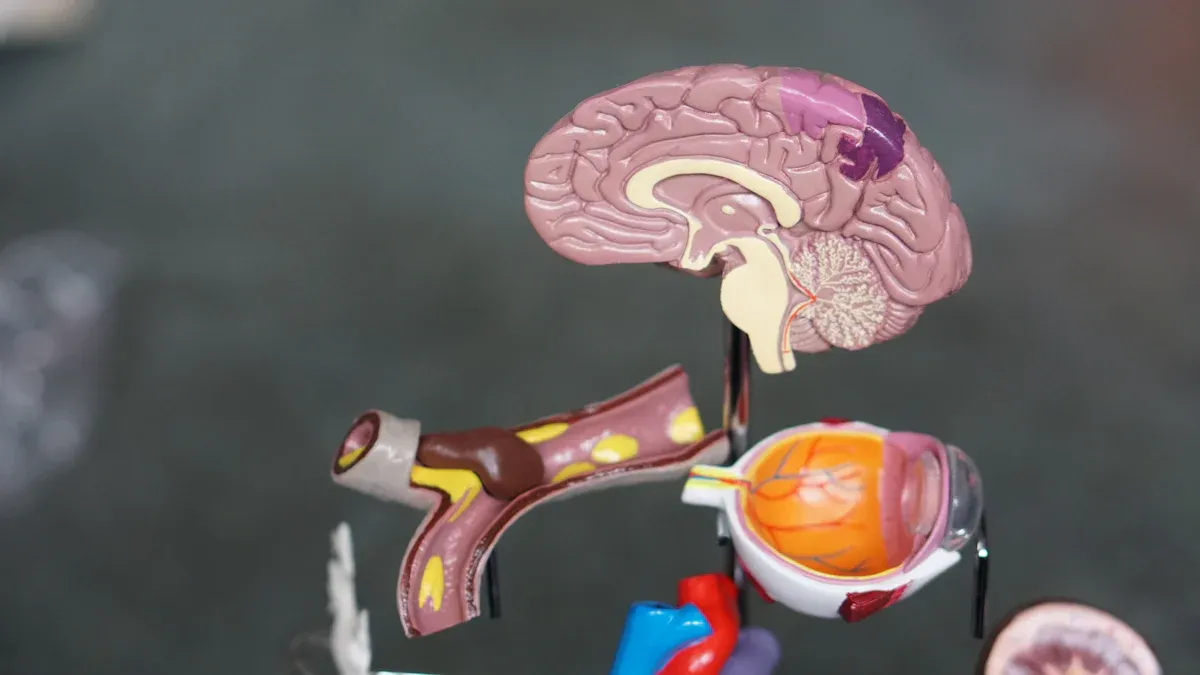
Cognitive Longevity
Many people want to maintain sharp thinking and strong memory as they age. Researchers have found that creatine supports long-term brain health by helping the brain produce more energy. This extra energy allows neurons to work better, even when aging reduces their efficiency. Creatine increases phosphocreatine stores in the brain, which helps protect against age-related declines in cognition and memory.
Studies show that creatine supplementation can improve cognitive performance in older adults. People who take creatine often report better memory and faster thinking during daily tasks. Scientists believe that creatine helps the brain resist the effects of stress and fatigue, which often increase with age. By supporting energy production, creatine may help older adults maintain cognitive function and independence.
Creatine acts as a buffer for brain energy, which supports healthy cognition and may slow down age-related changes in memory and thinking.
Older Adults
Older adults face unique challenges in maintaining brain health. Aging can reduce muscle strength, increase fatigue, and lower cognitive abilities. Creatine offers several benefits for this group. Research shows that creatine supplementation increases brain creatine and phosphocreatine levels, which link to improved neuropsychological performance. Clinical studies demonstrate that creatine can enhance cognitive processing, especially when aging or sleep deprivation impairs cognition.
Creatine also improves muscle strength and fatigue resistance. These changes help older adults perform daily activities with greater ease. Improved physical function supports brain health by allowing people to stay active and engaged. Trials indicate that creatine supplementation, alone or combined with resistance training, leads to greater improvements in muscle mass, strength, bone density, and cognitive function compared to training alone.
A randomized double-blind clinical trial in older women found that creatine supplementation, with or without strength training, may benefit cognitive function. Although researchers continue to study the details, the results support creatine’s role in maintaining or improving cognitive health in older adults.
The table below summarizes key benefits for older adults:
Benefit | Description |
|---|---|
Brain Health | Increases brain creatine and phosphocreatine, supporting cognition and memory |
Cognitive Performance | Enhances cognitive processing, especially under stress or fatigue |
Physical Function | Improves muscle strength, fatigue resistance, and daily living activities |
Safety | Creatine is safe and inexpensive for aging populations |
Creatine provides both central and peripheral effects that support long-term brain health. Older adults who use creatine may experience better memory, stronger cognition, and improved quality of life.
Neurological Conditions
Brain Injury
Creatine plays a significant role in supporting recovery after brain injury. Researchers have studied its effects in both animal models and clinical settings. Animal studies show that creatine supplementation before traumatic brain injury reduces cortical damage by up to 50%. These studies reveal that creatine protects mitochondrial function, maintains membrane potential, and lowers oxidative stress. Higher doses of creatine lead to greater neuroprotective effects, as seen by reduced markers of secondary injury such as lactate and free fatty acids.
In vitro research suggests that creatine’s neuroprotective action comes from increased cellular energy and reduced excitotoxicity, rather than direct antioxidant effects. Clinical studies in children and adolescents with moderate to severe brain injury demonstrate that creatine supplementation improves cognitive function and reduces symptoms like headaches, dizziness, fatigue, and language difficulties. Timing matters; animal studies indicate that pre-injury supplementation yields stronger neuroprotective benefits, while post-injury supplementation may be less effective due to slow uptake in neural tissue. These findings highlight creatine’s therapeutic potential for neurological disorders involving brain injury and support further research into its use for high-risk populations.
Creatine reduces oxidative stress and supports mitochondrial health.
Supplementation improves cognitive outcomes after neurological trauma.
Timing and dosage influence the neuroprotective effects of creatine.
Mood Disorders
Creatine shows promise in managing mood disorders such as depression and anxiety. Multiple animal studies demonstrate antidepressant effects, with female rodents often showing greater improvement. Researchers find that combining creatine with exercise or other treatments enhances these therapeutic benefits. Human clinical trials have explored creatine supplementation in major depressive disorder and bipolar depression, including treatment-resistant cases. These studies report reductions in depressive symptoms when creatine is used alone or with other therapies.
Mechanistic studies suggest that creatine improves mood by boosting brain energy metabolism, modulating neurotransmitter systems, and promoting neurogenesis. It also provides neuroprotection against oxidative stress and neuroinflammation. Observational studies reveal an inverse association between dietary creatine intake and depression risk, supporting its role in mood regulation. Combining creatine with SSRIs or other antidepressants may improve treatment efficacy, especially in resistant depression. Limitations include small sample sizes and varied protocols, so future research must address optimal dosing and long-term safety. Overall, creatine offers therapeutic benefits for neurological disorders involving depression and anxiety, but robust clinical validation is needed.
Creatine enhances brain energy and neurotransmitter balance.
Supplementation may reduce symptoms of depression and anxiety.
Combining creatine with standard treatments can improve outcomes in mood disorders.
Neurodegenerative Diseases
Creatine has attracted attention for its potential impact on neurodegenerative diseases. These neurological disorders, including Alzheimer’s and Parkinson’s, involve progressive loss of brain function. Researchers have found that mitochondrial dysfunction, oxidative stress, and reduced creatine kinase activity are key features in Alzheimer’s disease. Creatine shows neuroprotective effects in early stages and in cellular and animal models, protecting neurons against glutamate and β-amyloid toxicity. However, creatine deposits in late-stage Alzheimer’s may limit supplementation benefits.
In Parkinson’s disease, creatine supplementation improves bioenergetic deficits and may reduce mitochondrially mediated apoptosis. Animal models and clinical trials suggest neuroprotective effects, but clinical trials have not demonstrated clear benefits in patients. Creatine targets impaired cellular energy metabolism common in neurodegenerative diseases, yet clinical evidence remains limited and inconclusive for Alzheimer’s, with somewhat more promise in Parkinson’s.
Disease | Evidence Summary | Type of Evidence | Clinical Evidence Status |
|---|---|---|---|
Alzheimer’s (AD) | Mitochondrial dysfunction, oxidative stress, and reduced creatine kinase activity are key features. Creatine shows neuroprotective effects in early stages and in cellular/animal models. Creatine deposits in late-stage AD may limit supplementation benefits. | Molecular and cellular studies, animal models, biochemical analyses | Limited and inconclusive clinical evidence; ongoing studies. |
Parkinson’s (PD) | Creatine supplementation improves bioenergetic deficits and may reduce mitochondrially mediated apoptosis. Neuroprotective effects suggested. | Animal models, biochemical studies, clinical trials | Clinical trials have not demonstrated clear benefits, but creatine is considered more promising than in AD. |
Observational studies indicate that adequate dietary creatine intake associates with better cognitive performance in older adults. However, brain creatine levels are tightly regulated and less responsive to supplementation than muscle. Clinical trials in Huntington’s and ALS have not shown clear protective effects. Creatine may provide cognitive benefits under conditions of low baseline brain creatine or increased energy demand, but evidence for delaying or improving neurodegenerative disease outcomes remains inconclusive. Researchers continue to explore creatine’s therapeutic potential for neurological disorders, focusing on its neuroprotective and energy-supporting properties.
Creatine offers hope for neurodegenerative diseases, but further clinical trials are needed to confirm its therapeutic benefits and neuroprotective effects.
Creatine Supplementation
Dosage
Researchers have explored different dosages of creatine supplementation for brain health. Clinical studies often use amounts ranging from 2 grams per day up to 20 grams per day. The most consistent increases in brain creatine levels appear with higher doses, such as 20 grams daily, taken for one to four weeks. Some studies use moderate doses like 10 grams per day, but results for cognitive improvement remain mixed, especially in healthy young adults. No official clinical guideline exists for the best dosage to support cognitive or neurological benefits. People with lower baseline brain creatine levels, such as vegetarians or older adults, may need higher or longer dosing to see results. Individual response can vary, so starting with a lower dose and adjusting as needed is common practice.
Tip: Always consult a healthcare provider before starting creatine supplementation, especially for brain health purposes.
Safety
Creatine is a natural compound found in the body and in foods like meat and fish. Most people tolerate creatine supplementation well. Studies show that taking 3 to 5 grams daily is generally safe for adults. Some people may notice temporary water retention during the first week of creatine use, but this effect does not last. Creatine is not an anabolic steroid and does not affect testosterone levels. People with kidney disease or other health conditions should talk to a doctor before using creatine. The FDA does not regulate supplement contents, so the purity and dosage of products may vary. Choosing reputable brands helps reduce risks.
Creatine supplementation is safe for most adults at recommended doses.
Temporary side effects like water retention may occur.
People with kidney problems should seek medical advice before starting dietary creatine.
The safety of long-term creatine use in children and pregnant women is not well studied.
Choosing a Supplement
Selecting the right creatine supplement supports both safety and effectiveness. Creatine monohydrate is the most researched and widely used form. It dissolves well in water and offers reliable results for both muscle and brain health. Other forms, such as creatine ethyl ester or buffered creatine, do not show better absorption or benefits in studies. When choosing a product, look for third-party testing to ensure purity and accurate labeling. Some supplements may contain fillers or impurities, so reading ingredient lists is important. People who follow vegetarian or vegan diets may benefit most from dietary creatine or brain health supplements, as their natural intake is lower.
Supplement Type | Pros | Cons |
|---|---|---|
Creatine Monohydrate | Most studied, affordable, effective | May cause mild water retention |
Other Forms | Marketed as advanced | No proven extra benefit, higher cost |
Note: Consistent creatine use, combined with a balanced diet, supports brain health and cognitive function.
Tips
People who want to support brain health with creatine supplementation can follow several practical tips to get the best results. Research shows that creatine works best when used consistently and with attention to quality and dosing.
Start with the Right Dose
Most studies recommend a daily dose of about 5 grams of creatine monohydrate. This amount supports mood and cognitive improvements for many people. Some may consider a loading phase, taking 10-20 grams daily for 1-2 weeks, then switching to a maintenance dose of 5 grams per day. However, this approach is not necessary for everyone.Be Consistent and Patient
Creatine supplementation should be consistent. The brain takes time to increase its creatine stores. People often need to supplement for at least 8 weeks before seeing benefits for memory, mood, or focus. Skipping days or stopping early may reduce the effectiveness.Choose the Best Form
Creatine monohydrate is the most studied and reliable form. Other types, like creatine ethyl ester or buffered creatine, do not show better results for brain health. Sticking with creatine monohydrate helps ensure safety and effectiveness.Monitor Product Quality
Not all supplements are created equal. Look for creatine products that have third-party testing. This helps confirm purity and accurate labeling. High-quality creatine reduces the risk of unwanted additives or contaminants.Consider Who Benefits Most
Certain groups may see greater improvements from creatine supplementation. Older adults, vegetarians, vegans, and people under stress or with sleep deprivation often have lower baseline brain creatine. These groups may notice bigger changes in cognitive function or mood.Adjust for Special Needs
Some people with high brain energy demands, such as those with depression or chronic fatigue, may benefit from higher doses—up to 10 grams per day. Long-term safety at these higher doses is still under study, so medical supervision is important.Watch for New Developments
Scientists are exploring new compounds, like guanidinoacetic acid and cyclocreatine, which may help bypass the brain’s creatine transport limits. These options are not yet widely available but may offer future benefits.
Tip: Always talk to a healthcare provider before starting creatine supplementation, especially for brain health. People with kidney problems or other health conditions should use extra caution.
Tip | Why It Matters |
|---|---|
Use creatine monohydrate | Proven safe and effective for brain health |
Take 5 grams daily | Supports memory, mood, and cognitive improvements |
Supplement for 8+ weeks | Allows brain creatine levels to rise |
Check for third-party testing | Ensures supplement quality and safety |
Target at-risk groups | Older adults, vegetarians, and stressed individuals |
Creatine use for brain health works best when people follow these tips. Consistency, quality, and the right dose help maximize the benefits of creatine supplementation.
Myths and Facts
Common Misconceptions
Many people hold incorrect beliefs about creatine and its effects on brain health. These myths can prevent individuals from considering creatine supplementation or cause unnecessary worry. Here are some of the most common misconceptions:
Creatine causes muscular damage. Research shows creatine is a natural substance that supports energy production in muscles. It does not increase muscle damage. In fact, creatine may help muscles recover and lower the risk of injury.
Creatine harms kidney function. Studies do not support the idea that creatine damages kidneys in healthy people. Concerns often come from misunderstandings about how creatine is processed in the body.
Creatine is only for athletes or bodybuilding. Creatine offers benefits beyond muscle growth. It can improve memory, support intelligence test scores, and provide neuroprotective effects that may slow the progression of some neurological diseases.
Safety concerns about creatine side effects are often overstated. Most people who use creatine responsibly do not experience serious side effects. Rare problems usually occur in people with abnormal creatine levels or existing health issues.
These facts show that creatine is safe for most healthy individuals and can support both physical and cognitive health. People should base their decisions on scientific research rather than rumors or outdated information.
Evidence vs. Hype
Popular claims about creatine often promise broad cognitive enhancement. Many advertisements suggest creatine can boost brain power for everyone. Scientific evidence paints a more detailed picture. Researchers have found that creatine supplementation can improve neurological and cognitive function, especially by increasing brain creatine and phosphocreatine levels. Benefits appear most clearly in situations where the brain faces stress, such as sleep deprivation, aging, or mild brain trauma.
For example, studies show that creatine helps older adults resist fatigue and maintain muscle strength. Some research highlights improvements in cognitive processing and memory when the brain is under stress. In sleep-deprived individuals, a single high dose of creatine can enhance short-term memory and processing speed for several hours. Creatine works by converting into phosphocreatine, which provides quick energy to the brain without needing oxygen.
However, creatine does not offer the same benefits to everyone. Young, healthy people with balanced diets often see little or no improvement in cognitive performance. Differences in diet, race, and supplementation protocols may explain why results vary between studies. The best dose for brain health remains unknown, and creatine is not effective for all types of brain creatine deficiencies.
Creatine may also help protect the brain by reducing inflammation and oxidative stress. It could improve mood and support recovery after mild brain injuries. Despite these promising findings, experts caution against believing that creatine is a miracle solution for cognitive enhancement. High doses used in some studies may strain the kidneys, so professional guidance is important.
Research Directions
New Studies
Scientists continue to explore new areas in creatine research. Recent studies show that creatine does more than support muscle energy. Researchers discovered creatine inside synaptic vesicles, which suggests it may act as a neurotransmitter in the central nervous system. This finding opens new possibilities for understanding how creatine affects brain signaling.
Creatine also stimulates mitochondrial activity in hippocampal neurons. This action helps protect brain cells by reducing oxidative stress and boosting antioxidant effects. The muscle-brain axis is another emerging concept. Skeletal muscle releases myokines such as BDNF, IL-6, IGF-1, irisin, and lactate. These molecules cross the blood-brain barrier and influence brain health, neurogenesis, and cognitive function.
Creatine supplementation increases ATP during muscle contraction. This change may affect myokine production, especially IL-6, which can impact mood and depression outcomes. Clinical applications now include neuroprotection in diseases like Parkinson’s and Huntington’s, concussion, spinal cord injury, and even maternal health. The safety profile of creatine remains strong, making it a versatile option for dietary support and clinical use.
Ongoing studies aim to clarify how creatine and muscle-derived myokines interact to support brain health. Researchers focus on the links between creatine, inflammation, and cognitive resilience. These directions represent the most recent advances in creatine research.
Scientists believe that creatine may play a role in both energy metabolism and neurotransmitter regulation, which could lead to new therapies for brain health.
Future Potential
Experts see many opportunities for future creatine research. They recommend focusing on psychiatric and neurologic groups who experience cognitive slowing or problems with brain energy. Standardized cognitive tests and neuroimaging, such as ³¹P-MRS, should be used to connect cognitive changes with shifts in brain energy metabolism.
Researchers suggest testing higher doses of creatine and longer supplementation periods. Many current studies use lower doses than those needed for demanding brain conditions. Expanding research to include psychiatric disorders like anxiety and psychosis may reveal new benefits.
Combining creatine with other metabolic interventions, such as exercise, sauna therapy, or ketogenic diets, could improve cognitive and psychiatric outcomes. Even though creatine is safe and easy to access, scientists advise monitoring for side effects, especially in vulnerable groups like those with bipolar disorder.
Future studies should use rigorous methods, including randomized controlled trials and neuroimaging biomarkers. These approaches will help clarify creatine’s role in cognitive resilience and mental health. Readers should watch for new findings about creatine’s impact on BDNF, inflammation, and brain energy.
Future Research Focus | Description |
|---|---|
Psychiatric Populations | Effects of creatine on cognitive slowing and neuroenergetic issues |
Neuroimaging Techniques | Use of ³¹P-MRS to link cognitive changes to brain metabolism |
Higher Doses & Longer Use | Testing creatine at higher doses and longer durations |
Expanded Disorders | Studies on anxiety, psychosis, and other psychiatric conditions |
Combined Interventions | Creatine with exercise, sauna, or dietary changes |
Safety Monitoring | Tracking side effects in vulnerable populations |
Readers interested in creatine for brain health should look for studies that use advanced imaging and test new combinations of therapies. The field continues to grow, and new discoveries may change how creatine supports cognitive resilience.
Researchers continue to explore creatine’s impact on brain health. Studies show creatine supplementation can increase brain creatine stores, improve cognitive and memory function, and support recovery after brain injury. The table below highlights key findings:
Key Findings on Creatine and Brain Health | Summary |
|---|---|
Brain energy support | Creatine raises brain creatine, helping energy metabolism. |
Cognitive improvement | Memory and cognitive gains appear in older adults and during stress. |
Recovery after injury | Creatine supplementation aids cognitive outcomes in children with brain injury. |
Mood benefits | Creatine may help reduce depression and anxiety symptoms. |
Neurodegenerative disease effects | Results remain mixed and need more research. |
Current research shows creatine replenishes brain energy, supports mitochondrial function, and may reduce inflammation. However, scientists note limitations such as unclear dosing, mixed results for cognitive tasks, and challenges measuring brain creatine. Individuals interested in cognitive benefits should choose creatine monohydrate, use safe doses, and consult healthcare professionals, especially if they have kidney concerns. Ongoing studies focus on new delivery methods and creatine’s role in neurotransmitter systems. The science of creatine and brain health continues to evolve, offering hope for future cognitive therapies.
FAQ
What is creatine and where does it come from?
Creatine is a natural compound found in meat and fish. The body also makes creatine in the liver, kidneys, and pancreas. People use creatine supplements to boost energy in muscles and the brain.
Can creatine improve memory or focus?
Studies show creatine may help memory and focus, especially in older adults or people under stress. The effects appear stronger in those with low baseline creatine, such as vegetarians.
Is creatine safe for daily use?
Most adults tolerate creatine well at recommended doses. Researchers report few side effects, like mild water retention. People with kidney problems should consult a doctor before using creatine.
Does creatine cause weight gain?
Creatine can increase water retention in muscles, which may lead to slight weight gain. This effect is temporary and does not mean fat gain.
Tip: Drinking enough water helps manage creatine-related weight changes.
Who benefits most from creatine supplementation?
Older adults, vegetarians, and people with high mental or physical stress often see the greatest benefits. Athletes and those recovering from brain injury may also notice improvements.
How long does it take to see results from creatine?
Most people need to use creatine for at least 4 to 8 weeks before noticing changes in memory, mood, or focus. Consistent daily use supports better results.
Can children or teens take creatine for brain health?
Researchers have not studied creatine use in children or teens for brain health. Safety and long-term effects remain unclear. Parents should speak with a healthcare provider before considering creatine for young people.
